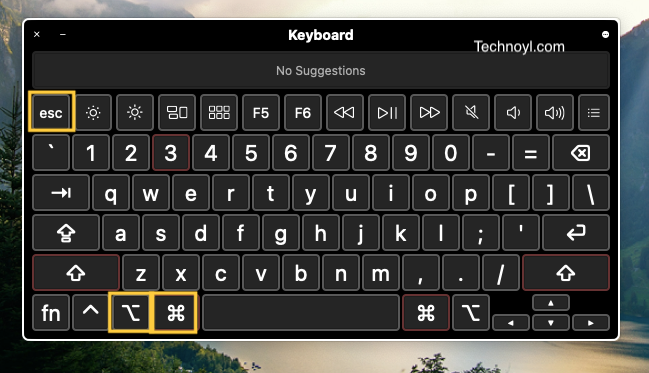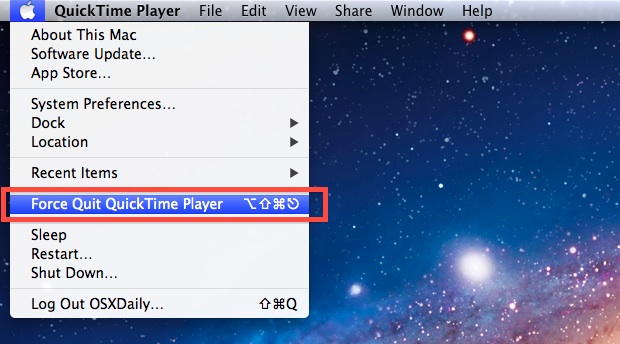

- #KEYBOARD SHORTCUT FOR FORCE QUIT MAC OS HOW TO#
- #KEYBOARD SHORTCUT FOR FORCE QUIT MAC OS UPDATE#
- #KEYBOARD SHORTCUT FOR FORCE QUIT MAC OS FULL#
- #KEYBOARD SHORTCUT FOR FORCE QUIT MAC OS WINDOWS#
Shift-Command-U: Open the Utilities folder.Control-Shift-Command-T: Add selected Finder item to the Dock (OS X Mavericks or later).Shift-Command-T: Show or hide the tab bar in Finder windows.Shift-Command-R: Open the AirDrop window.Shift-Command-P: Show or hide the Preview pane in Finder windows.Shift-Command-O: Open the Documents folder.Option-Command-L: Open the Downloads folder.Shift-Command-K: Open the Network window.Shift-Command-H: Open the Home folder of the current macOS user account.


#KEYBOARD SHORTCUT FOR FORCE QUIT MAC OS UPDATE#
(3) In Software Update preferences, check for software updates again. (2) In some apps, such as Calendar or Safari, refresh or reload the page.
#KEYBOARD SHORTCUT FOR FORCE QUIT MAC OS FULL#
#KEYBOARD SHORTCUT FOR FORCE QUIT MAC OS HOW TO#
Learn how to change a conflicting keyboard shortcut.) (If you use multiple input sources to type in different languages, these shortcuts change input sources instead of showing Spotlight. To perform a Spotlight search from a Finder window, press Command–Option–Space bar.
#KEYBOARD SHORTCUT FOR FORCE QUIT MAC OS WINDOWS#
To close all windows of the app, press Option-Command-W. Command-O: Open the selected item, or open a dialog to select a file to open.To minimize all windows of the front app, press Option-Command-M. Command-M: Minimize the front window to the Dock.To view the front app but hide all other apps, press Option-Command-H. Command-H: Hide the windows of the front app.To find the previous occurrence, press Shift-Command-G. Command-G: Find Again: Find the next occurrence of the item previously found.Command-F: Find items in a document or open a Find window.In some apps, you can undo and redo multiple commands. You can then press Shift-Command-Z to Redo, reversing the undo command. Command-V: Paste the contents of the Clipboard into the current document or app.Command-C: Copy the selected item to the Clipboard.Command-X: Cut the selected item and copy it to the Clipboard.To use these keys as F1, F2, F3, or other standard function keys, combine them with the Fn key.Ĭut, copy, paste, and other common shortcuts If these functions aren't available on your keyboard, you might be able to reproduce some of them by creating your own keyboard shortcuts. Some keys on some Apple keyboards have special symbols and functions, such as for display brightness, keyboard brightness, Mission Control, and more.


 0 kommentar(er)
0 kommentar(er)
